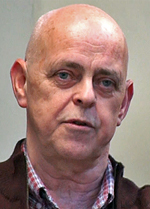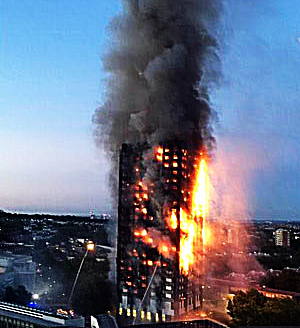CWU Conference 2018 - Report Of T&FS Health & Safety Debates
 Branch T&FS Section Health & Safety Officer, Derek Maylor reports from this year's CWU Conference held in Bournemouth over the last few days (Tues 24th April - Thurs 26th April) on health and safety matters that were debated by delegates from CWU Branches across the whole of the UK:
Branch T&FS Section Health & Safety Officer, Derek Maylor reports from this year's CWU Conference held in Bournemouth over the last few days (Tues 24th April - Thurs 26th April) on health and safety matters that were debated by delegates from CWU Branches across the whole of the UK:
There was concern raised around the lack of Display Screen Equipment Risk Assessments being carried out for employees working in the call centre and many of the office environments within BT. There appears to be decreasing attention from managers in carrying out DSE checks, with members increasingly highlighting defective chairs, desks, screens and issues with lighting. Management are also failing to encourage employees to spend time to set up their workstations correctly and take breaks during prolonged use and before the onset of fatigue.
We are very concerned that the Health and Safety (Display Screen Equipment) Regulations are not being given the appropriate respect to help reduce the main health risks associated with DSE such as musculoskeletal disorders, visual fatigue and mental stress. We will raise this with BT to ensure that a more robust DSE assessment programme is implemented as a matter of urgency.
The position of street furniture such as cabinets and boxes which have to be accessed by our members is not always placed in the safest accessible areas.
The Branch has our own particular problem with the cabinet in Culcheth which members brought to our attention two years ago and despite assurances nothing has been done. Conference agreed to pursue a process which improves on this by ensuring that the planning for the placement is done on site and not remotely from an office.
Glysophate is a herbicide used widely as a weed killer that has been linked to cancer and other health conditions.
In November EU countries voted to renew the licencing of it by 18 votes to 9 (one abstention) but some like France have vowed to ban it within three years and the European Food Safety Agency says that it is “unlikely” to cause cancer which if they meant that to reassure people, they failed. We will negotiate with BTFS management for the removal of any pesticide products containing glysophate and agree safer alternatives.
 The DSE Eye Voucher Scheme should be widened to include reading glasses where an individual is required to use either a hand held device or mobile phone as part of their daily working life. The cumulative effects of using small screens are unknown and we should err on the side of caution. Basically, if you need the tool to do the job you need the best protection to use it.
The DSE Eye Voucher Scheme should be widened to include reading glasses where an individual is required to use either a hand held device or mobile phone as part of their daily working life. The cumulative effects of using small screens are unknown and we should err on the side of caution. Basically, if you need the tool to do the job you need the best protection to use it.
Lead and fumes from solder is an old and reoccurring issue and we recognise the health risks associated with its use. Therefore we will seek an agreement with BT Openreach to end the procurement and use of solder containing lead with all existing stock to be recalled and replaced with lead free solder as soon as practicably possible. The possible risks to Health by the use of leaded solder are to be made clear to all BT employees who are liable to be exposed to leaded solder in the course of their work.
Environmental health covers a wide range of areas one of which is air pollution which is near a public health emergency. Over 40,000 people die each year from the air that they breathe which is more than obesity and alcohol combined.
A significant cause is carbon pollution arising from work and travel to work and it is an occupational health issue that employers take little responsibility for. Our members work in many workplaces that are in high pollution arears, i.e. town centres, next to roads, factories etc. Recent research shows that 43% of colleges in London are in locations that breach legal air pollution standards.
 Therefore we will negotiate with BT Group to promote a programme of carbon monoxide monitoring and air testing in BT buildings; provide regular environmental audits shared with the CWU; analyse all air filters when changed to determine the level of pollution and share results with the CWU and not just bin them; we will work with the Greener Jobs Alliance, the Hazards Campaign and other organisations promoting air quality.
Therefore we will negotiate with BT Group to promote a programme of carbon monoxide monitoring and air testing in BT buildings; provide regular environmental audits shared with the CWU; analyse all air filters when changed to determine the level of pollution and share results with the CWU and not just bin them; we will work with the Greener Jobs Alliance, the Hazards Campaign and other organisations promoting air quality.
Further information, including the AGM report, on the GJA is available on request
Lots of engineers and USRs complain about the difficulties in reporting building faults and the conference agreed that we need to provide a one point of contact logging process for BT property issues and Health & Safety building faults. We also need to provide prompt and permanent timescale resolution to heating systems that are condemned or, require urgent repairs held back due to regional budget restrictions.
BT gives the outside world the impression that it has a concern for employees with mental health issues. Its policies also give our members the same wellbeing assurances, until a performance case happens. These policies concentrate on coaching for performance, not as a punitive measure.
This is a serious issue as whilst in some cases performance management plans can boost work performance, they can have very serious consequences on members when they are experiencing a decline in their mental health and wellbeing. The pressure of extra coaching, having more calls listened to and thought of disciplinary action if the plan is failed, is simply too much for people already desperately struggling to cope.
 This is certainly not in the interest of BT or our members as it will often lead to staff having to take time away from the business as a consequence.
This is certainly not in the interest of BT or our members as it will often lead to staff having to take time away from the business as a consequence.
There is also concern that where there is considerable churn of managers this means that many have minimal training in the role and no management training’ therefore members who have disability passports that have PTSD, suffer from stress and anxiety and panic attacks or have underlying mental health issues do not receive reasonable adjustments from their managers.
Therefore we agreed to enter into talks with BT to ensure they educate all employees on mental ill health; to ensure BT managers are better trained, and retrained, in Mental Health First Aid and fully understand how they should support members experiencing mental ill health. We will secure a policy that means anyone who declares mental health issues will have that considered during any coaching or performance plans and that all managers receive mandatory mental health awareness training within 3 months of their appointment.
The conference noted the good work that Openreach have been doing in recruiting field engineers, especially with recruitment from the forces. However this has brought with it engineers who are suffering with PTSD or are developing it later on in their life. We now need Openreach to step up and help support these engineers. We will target these engineers with immediate talks with for Openreach to get managers trained in what PTSD is and how they can support their staff who may be suffering.
 Our colleagues have members currently working in BT Voice Services undertaking 999 calls have on many occasions gone over and above their duty in order to assist and support the public whilst waiting for emergency services. This can be at times a harrowing experience for our members and some of them require counselling support as a result.
Our colleagues have members currently working in BT Voice Services undertaking 999 calls have on many occasions gone over and above their duty in order to assist and support the public whilst waiting for emergency services. This can be at times a harrowing experience for our members and some of them require counselling support as a result.
Manpower members working in Voice Services dealt with extremely distressing calls on June 14th. and 15th. 2017 from members of the public who were trapped by fire In Grenfell Tower were not afforded any such counselling and were told that these services were not available. We will make urgent representation to Manpower to ensure that our members are adequately supported in situations such as the Grenfell Tower disaster and an Employee Assistance Programme is put in place in order that counselling and support services are available.
Currently many managers refuse to ask the OHS if a person is likely to be covered under the Equality Act 2010 for a disability. The response from the HR case handler being that “the OHS wouldn’t comment on that question anymore as it is a legal decision and not a medical decision to advise if someone is covered by that act”.
It would appear that even when provided with evidence of why a person meets the criteria and therefore would be covered under Equality Act, BT expects that each person needs to take their case to an Employment Tribunal for a decision.
This is an unacceptable situation and must be addressed without further delay.
Any member who is referred to the OHS, BT must include a question asking the OHS if the person is likely to be covered under the Equality Act 2010 for their disability and an agreed process put in place detailing with what criteria BT expects the person to meet to be covered under Equality Act.
There is an increased importance to BT and Openreach of environmental issues due to the possibility of losing their ISO4001 licence. To prevent this loss they have employed Exchange Yard Marshals to manage environmental waste and some branches have created the post of Environmental Officer, though more normally USRs have taken on this role.
However this currently carries no time to fulfil such duties so we will negotiate additional separate facility time for branches to cover the role of an Environmental Officer or additional time for the USR to enable them to fulfil this additional role.

